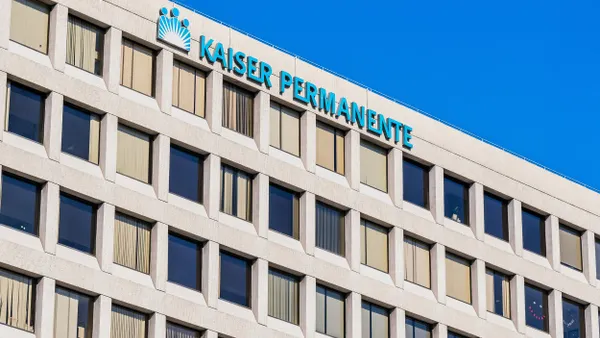Dive Brief:
- Community Health Systems’ operational revenue fell during the second quarter due to softer-than-expected volumes, the for-profit operator said Wednesday.
- As a result of the lower volumes, the Tennessee-based system lowered its 2025 guidance for pre-tax earnings excluding certain expenses.
- CHS also announced the retirement of its CEO Tim Hingtgen. CFO Kevin Hammons will assume the chief executive role on Sept. 30, while current chief accounting officer Jason Johnson will become interim CFO, the system said.
Dive Insight:
CHS is the second major hospital system to report declining volumes in the quarter. Executives at CHS attributed the flagging volumes to consumer uncertainty, which is affecting how people spend their money.
“It’s those patients who have the highest co-pays and deductibles that are being most impacted,” Hammons said on a Thursday call with investors.
In the second quarter, CHS’ same-store adjusted admissions declined 0.7% compared to the prior year, with the biggest percentage decline in surgeries. Consolidated admissions were down 7.4% and adjusted admissions were down 8.3%.
The federal crackdown on immigration might also be impacting volumes, especially CHS’ portfolio in states with larger concentrations of immigrants like Arizona, Texas and Florida, Hammons said.
The Trump administration has escalated deportations of undocumented immigrants. In January, the Department of Homeland Security announced that immigration agents would be allowed to conduct enforcement operations in hospitals. Previously, hospitals and other “sensitive areas,” including elementary and secondary schools, colleges and churches, had been off limits.
“There have been well-documented instances of individuals in the immigrant community not participating in some normal everyday things, not going to church, school or going to the hospital, not going to concerts, doing things like that,” Hammons said. “I know the hospitals are no longer considered a sanctuary location, and there is concern even among immigrants with legal status that there’s some fear in that community.”
CHS now expects adjusted admissions to grow 0% to 1% year over year in 2025. Previously, the company had expected growth of 2% to 3%, according to the CFO.
The lower volumes hit CHS’ adjusted earnings before interest, taxes, depreciation and amortization, which was $380 million in the quarter, down from $387 million in the prior year period. Net operating revenues also fell slightly.
The lower-than-expected volume growth in the quarter also contributed to CHS tightening its adjusted EBITDA guidance for 2025. The operator now expects between $1.45 billion to $1.55 billion in adjusted EBITDA, when it previously expected $1.6 billion in its upper-end.
Additionally, CHS said it expects a cumulative $300 million to $350 million reduction in EBITDA over the next 13 years from restrictions on Medicaid provider taxes and state-directed payments in the GOP’s recently-passed “Big Beautiful Bill.”
The law should have no impact in 2025 or 2026, an immaterial impact in 2027 and then build from there, Hammons said.
CHS’ forecast does not take into account an impact from Medicaid work requirements or other provisions that could affect enrollment in the Affordable Care Act exchanges, like the expiration of enhanced subsidies, according to the CFO.
Executives said that CHS is making progress deleveraging its balance sheet, a long-term goal for the operator. Going forward, the operator expects proceeds from several recent divestitures to help, including $195 million from its sale of some assets to Labcorp and roughly $100 million from its sale of a hospital in Tennessee.
CHS also has a number of other divestitures in progress, Hammons said.
CHS also shared that Hingtgen will step down as CEO in September, ending his nearly 18-year tenure at CHS to spend more time with his family.
Hingtgen became CEO in 2021 after serving as president and COO from 2016 to 2020.
“This is not a decision that was made easily or quickly or without regard to what's best for CHS. I wrestled with whether to retire and when to retire in part out of a sense of loyalty to the organization, but even more than that, out of my sincere desire to continue to be a part of the progress happening in this company and the opportunities and achievements I still see ahead,” Hingtgen said during the investor call.
Analysts at Jefferies said the CEO transition could add uncertainty for the operator as it deals with federal policy overhauls and deleveraging its balance sheet.
Although CHS “has a deep tenured bench of executives,” Hingtgen’s departure “adds a layer of uncertainty that should prompt a discount to the stock's valuation, at least until new [management] track record is established,” according to a Thursday note from Jefferies.














